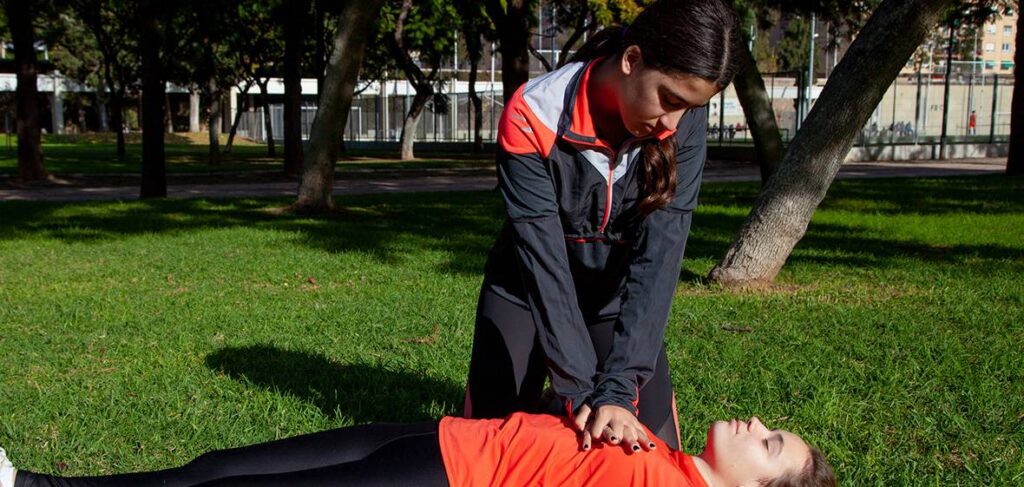Are you an athlete or someone who regularly exercises intensely? You might think that being in top physical shape means your heart is always in great condition—but did you know that athletes can also face heart problems? While fitness can help prevent many health issues, the intense physical demands of training and competition can sometimes put extra stress on the heart.
In this blog, we’ll explore whether athletes are more prone to heart problems, the common heart conditions they may face, and how you can protect your heart while staying active. Understanding the link between heart health and exercise can help you stay safe and perform at your best.
Contents
- 1 Are Athletes at Higher Risk for Heart Disease?
- 2 How Intense Exercise Affects the Heart
- 3 Common Heart Problems in Athletes
- 4 Signs of Heart Problems in Athletes
- 5 How to Protect Your Heart as an Athlete
- 6 Role of a Cardiologist in Preventing Heart Problems in Athletes
- 7 Get Connected to an Online Cardiologist Today
Are Athletes at Higher Risk for Heart Disease?
 Athletes generally have better cardiovascular health due to regular exercise, but certain factors can increase their risk of heart problems:
Athletes generally have better cardiovascular health due to regular exercise, but certain factors can increase their risk of heart problems:
1. Lower Risk of Heart Disease
Regular exercise helps reduce the risk of high blood pressure, high cholesterol, and obesity, all of which contribute to heart disease.
2. Increased Risk Due to Intense Training
Intense exercise can lead to changes like an enlarged heart or arrhythmias (irregular heartbeats), which may increase the risk of heart problems.
3. Genetics and Family History
Athletes with a family history of heart disease or certain conditions, like hypertrophic cardiomyopathy, are at higher risk.
4. Heart Conditions Specific to Athletes
Conditions like arrhythmias and coronary artery anomalies are more common in athletes and may require regular monitoring.
While regular exercise is beneficial, it’s essential for athletes to monitor their heart health through regular screenings to detect potential issues early.
How Intense Exercise Affects the Heart
 Intense exercise puts extra stress on the heart, but it can have both positive and negative effects depending on the duration and intensity of the activity:
Intense exercise puts extra stress on the heart, but it can have both positive and negative effects depending on the duration and intensity of the activity:
1. Positive Effects
- Stronger Heart: Regular exercise strengthens the heart, improving its ability to pump blood efficiently. This leads to better circulation and overall heart health.
- Increased Efficiency: Over time, the heart becomes more efficient, with a lower resting heart rate and improved endurance during physical activity.
2. Potential Negative Effects
- Heart Enlargement: Long-term, intense exercise, especially in endurance athletes, can cause the heart to enlarge, which might increase the risk of arrhythmias (irregular heartbeats).
- Increased Risk of Injury: Prolonged strain on the heart muscle can sometimes lead to injury or conditions like athlete’s heart syndrome, which can cause abnormal heart rhythms or heart failure if not properly managed.
While intense exercise generally promotes heart health, it’s important for athletes to balance training with proper rest and monitor their heart health regularly to avoid potential risks.
Common Heart Problems in Athletes
 While athletes typically enjoy better cardiovascular health, they can still be susceptible to certain heart conditions due to the physical demands of intense exercise. Here are some common heart problems in athletes:
While athletes typically enjoy better cardiovascular health, they can still be susceptible to certain heart conditions due to the physical demands of intense exercise. Here are some common heart problems in athletes:
1. Arrhythmias
-
Arrhythmias, or abnormal heart rhythms, can occur in athletes due to increased heart size or electrical disruptions caused by intense training. Common types include atrial fibrillation and ventricular tachycardia.
2. Hypertrophic Cardiomyopathy (HCM)
-
Hypertrophic cardiomyopathy is a condition where the heart muscle becomes thickened, making it harder for the heart to pump blood. It’s one of the leading causes of sudden cardiac arrest in young athletes.
3. Exercise-Induced Hypertension
-
Intense physical activity can cause temporary high blood pressure (exercise-induced hypertension), which, if persistent, could lead to long-term heart problems and increase the risk of heart disease.
4. Coronary Artery Anomalies
-
Coronary artery anomalies refer to abnormal coronary artery structures that can restrict blood flow to the heart, causing chest pain or, in rare cases, heart attacks during exercise.
Although these conditions are less common, they highlight the importance of regular screenings and heart health monitoring, especially for athletes involved in rigorous training. Early detection can help prevent serious complications.
Signs of Heart Problems in Athletes
Athletes should be aware of the following signs that may indicate heart issues:
- Chest Pain or Discomfort
- Shortness of Breath during exercise or at rest
- Dizziness or Lightheadedness
- Fainting or Near-Fainting Episodes
- Irregular Heartbeat or Palpitations
- Excessive Fatigue or weakness, especially during physical activity
- Swelling in the Legs or Ankles
- Unusual Sweating, especially without exertion
- Pain in the Neck, Jaw, or Back
- Difficulty Breathing during or after exercise
If any of these symptoms occur, it’s important to consult a healthcare provider immediately for proper evaluation and diagnosis. Early detection and treatment can prevent serious complications.


